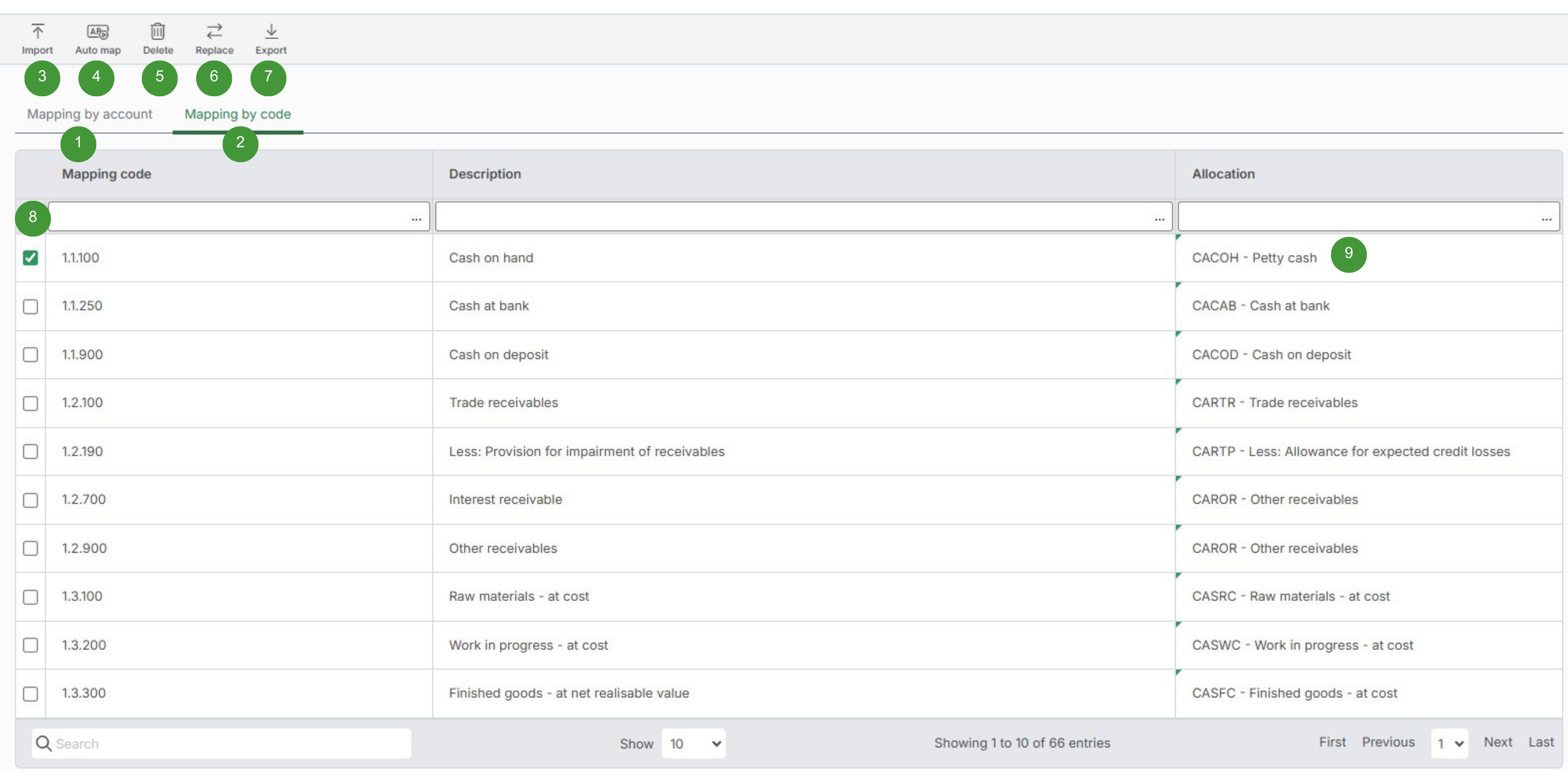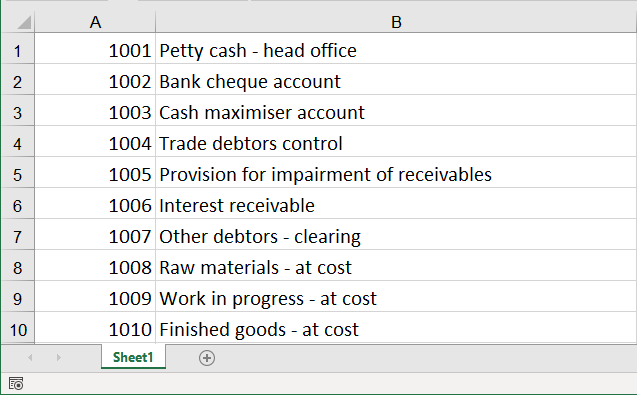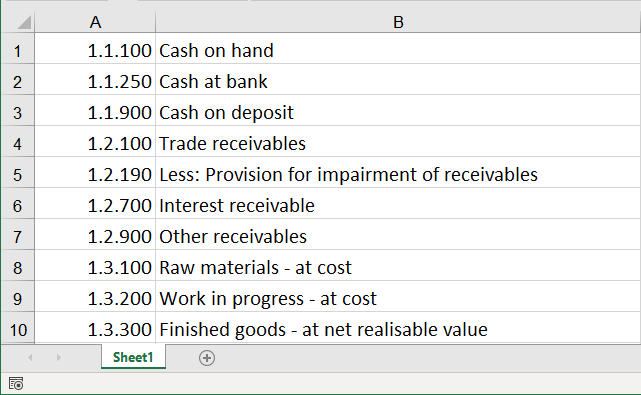Video help
In this video:
- Mapping introduction
- Mapping by account
- Mapping by code
Jump to a specific point in the video with the chapters button in the video.
Mapping case studyMapping case study
In this video:
- Understanding mapping with a case study
Mapping features
Mapping is intended to save significant time allocating and is an alternative manual allocation.
Note: Mapping is at an entity level, not a report level, meaning that mapping is shared between reports within the same entity.

| Option | Function | Notes | |
| 1 |
Mapping by account |
Switch to Mapping by account |
|
| 2 |
Mapping by code |
Switch to Mapping by code |
|
| 3 |
Import |
Import a mapping file from Excel |
|
| 4 |
Auto map |
Maps the file automatically |
|
| 5 |
Delete |
Delete rows |
|
| 6 |
Replace |
Find and replace allocations |
|
| 7 |
Export |
Export to Excel |
|
| 8 |
Select |
Selects the mapping row |
|
| 9 |
Allocation |
Mapping allocation |
|
Mapping by account
- Mapping by account is generally used when there are multiple trial balances and a common general ledger chart of accounts
- Use mapping to allocate the common chart from the general ledger and when trial balances are imported using mapping by account, the account numbers will be matched and allocated.
See the Import examples topic for examples on mapping by account.
Import Mapping by account
To import a Mapping by account file:
- Click Modules > Mapping
- Click Mapping by Account
- Click Import
- In Import mapping by select Account
- Select the file to import
- Click OK
- Importing new data will merge with any existing data.
The required format of the import file is:
| Column A | Column B | Column C | |
|
Column |
General ledger account number |
General ledger account name |
Accurri allocation |
|
Required |
Required |
Required |
Optional |
|
Notes |
100 characters maximum length |
200 characters maximum length |
5 characters |
The following image shows a valid sample file:

As the sample file above has no Column C, the accounts can either be manually mapped, or use Auto map to automatically map them. See Allocating for more details.
Apply Mapping by account retrospectively
- If changes were made to the mapping by account file and you want these to flow through to the trial balance(s), then Mapping by account can be applied to already imported trial balances
- See the Trial balance topic for further information.
Mapping by code
- Mapping by code is generally used where third-party software, such as audit software or management/analytical reporting software is used, and this software has a mapping code
- Or trial balances may have been previously mapped/coded manually in Excel, including using description such as 'Cash at bank'
- The mapping code from the third-party software is imported and allocated and when the trial balances are imported using mapping by code with these codes included, it will match the codes and replace these with Accurri allocations.
Auto map can be used to allocate the trial balances and export the data for import into third-party software, as software will produce the mapping allocation in the trial balance output. This saves set-up time in the third-party software.
See the Import examples topic for examples on mapping by code.
Import Mapping by code
To import a mapping by code file:
- Click Modules > Mapping
- Click Mapping by code
- Click Import
- In Import mapping by select Code
- Select the file to import
- Click OK
- Importing new data will merge with any existing data
The required format of the import file is:
| Column A | Column B | Column C | |
|
Column |
Mapping code |
Mapping name |
Accurri allocation |
|
Required |
Required |
Required |
Optional |
|
Notes |
100 characters maximum length * |
200 characters maximum length |
5 characters |
* The mapping code can be a number, a code, text or any combination of letters, numbers and characters. If there is no code associated with the mapping name, duplicate the name from Column B to Column A, assuming each description is unique.
The following image shows a valid sample file:

As the sample file above has no Column C, the accounts can either be manually mapped, or use Auto map to automatically map them. See Allocating for more details.
Import errors
There are several types of error that could occur while importing a mapping file:
- Empty mapping file (it could also be blank rows at the top)
- Account number not found (it could also be blank rows at the bottom)
- Account number duplicated (each account number must be unique)
- Account description not found
- Account allocation not found
Allocating the mapping file
Include the Accurri allocation in the import file
The Accurri allocation can be imported at the same time, within the mapping by account or mapping by code file.
Manual allocation
Refer to Primary chart of accounts for a complete list of allocations. If manually allocating, you can type in all, or part, of an allocation code, or part of a description and it will filter to the matches.
Auto map
Select all accounts or just unallocated accounts and Accurri will automatically allocate the mapping based on the descriptions. Check the allocations once auto map is complete.